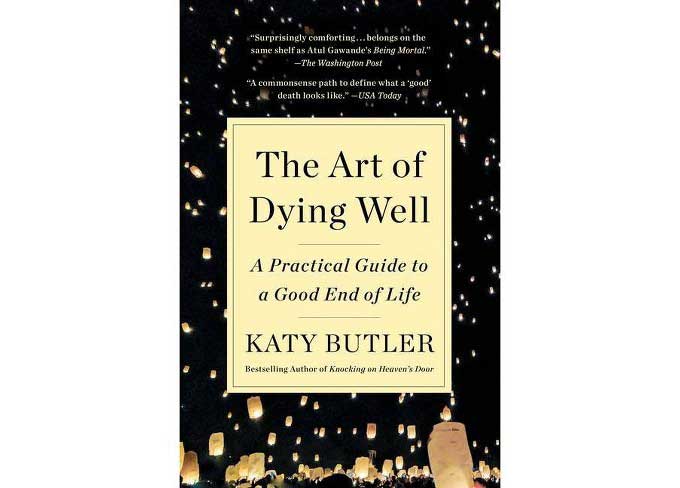SANTA CRUZ COUNTY—The Watsonville Public Library, along with Hospice Santa Cruz County (HSCC), will be hosting a virtual book discussion on Zoom on Nov. 5 at 5:30pm.
The event will be centered around author Katy Butler’s “The Art of Dying Well,” a nonfiction book published in 2019 that aims to guide readers through the process of death and grieving, while still leading fulfilling lives.
Librarian Jillian Wilson, the primary organizer of the event, said she had listened to the book on a podcast and had immediately been taken with its gentle yet realistic approach.
“I really like how it’s organized,” she said. “It really takes a holistic approach… going beyond just explaining how to write a will. It asks things like, What rituals do you want to have when you die, and who do you want around you? The earlier you start thinking about these things, the better.”
Wilson added that she is currently going through issues with family members, and has been eager to find ways to help them and herself.
“[The book] was relevant to me, what I’ve been going through… I have people in my life who just aren’t prepared… and I don’t want to leave anyone in that same position,” she said.
Wilson reached out to Vanesa Silverstein of HSCC to cohost the virtual event. The discussion will be structured loosely around the text, but participants are not required to have read it to join in. If they would like a copy of the book, the first group of people registered for the discussion can stop by the library’s main branch at 275 Main St. for a copy (while supplies last).
Wilson had Silverstein in mind to help out after attending one of HSCC’s Death Cafes, events where people can come together and talk about death. The events, facilitated by Silverstein, are not meant as support groups or counseling sessions—instead, they are where people can discuss death without agenda or objective, and ultimately affirm what is important in life.
Wilson said she hopes the library’s event has a similar feel.
“Our culture actively avoids the topic of death… there is so much stigma around these conversations,” she said. “What we need to do is normalize it. It doesn’t need to be ‘morbid.’ We all face it… so we should all learn how to talk about it.”
•
The virtual program will be presented in English and accessible through Zoom. Participants must register here to receive the access link. For information and assistance call 768-3404.









